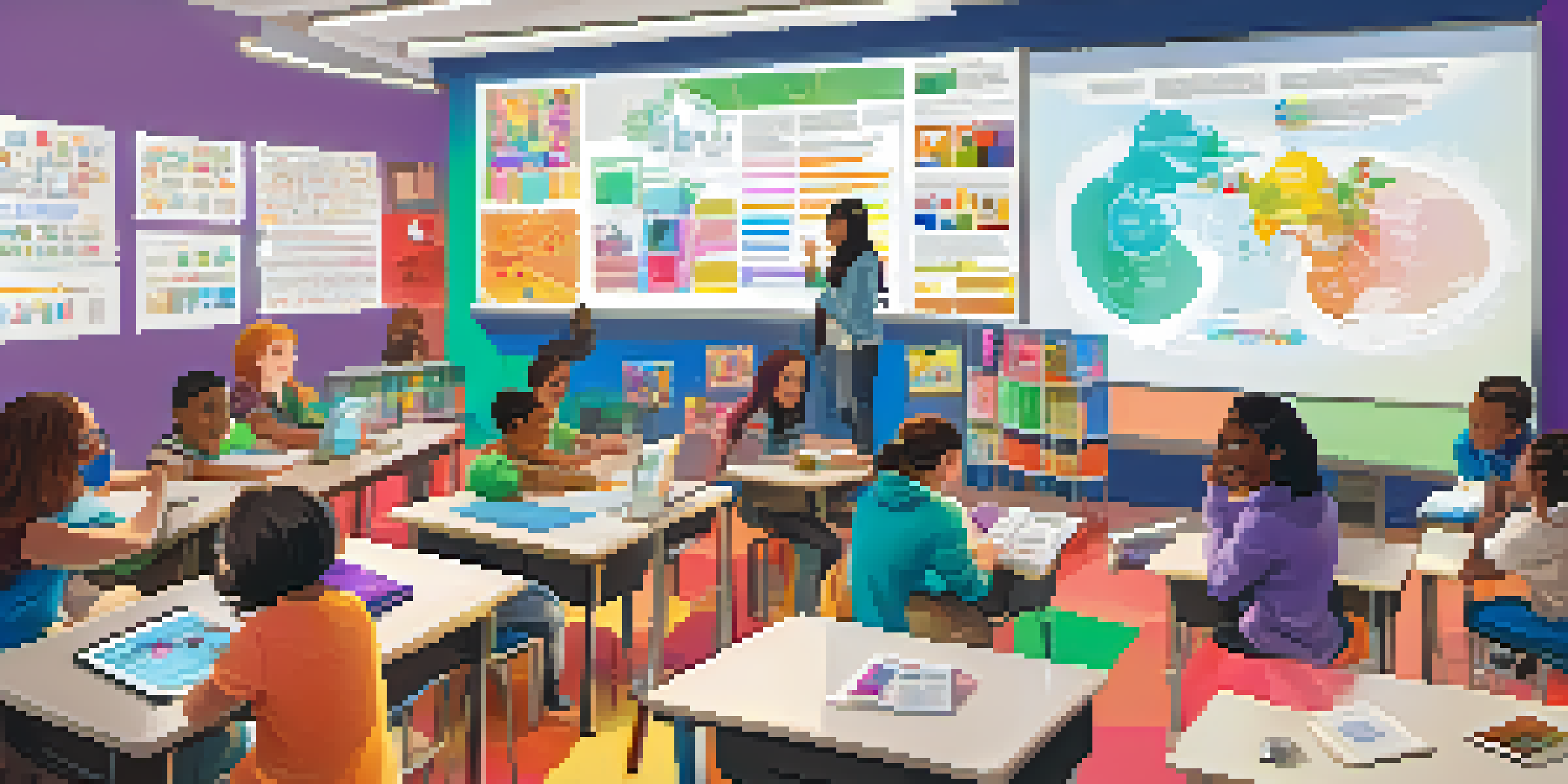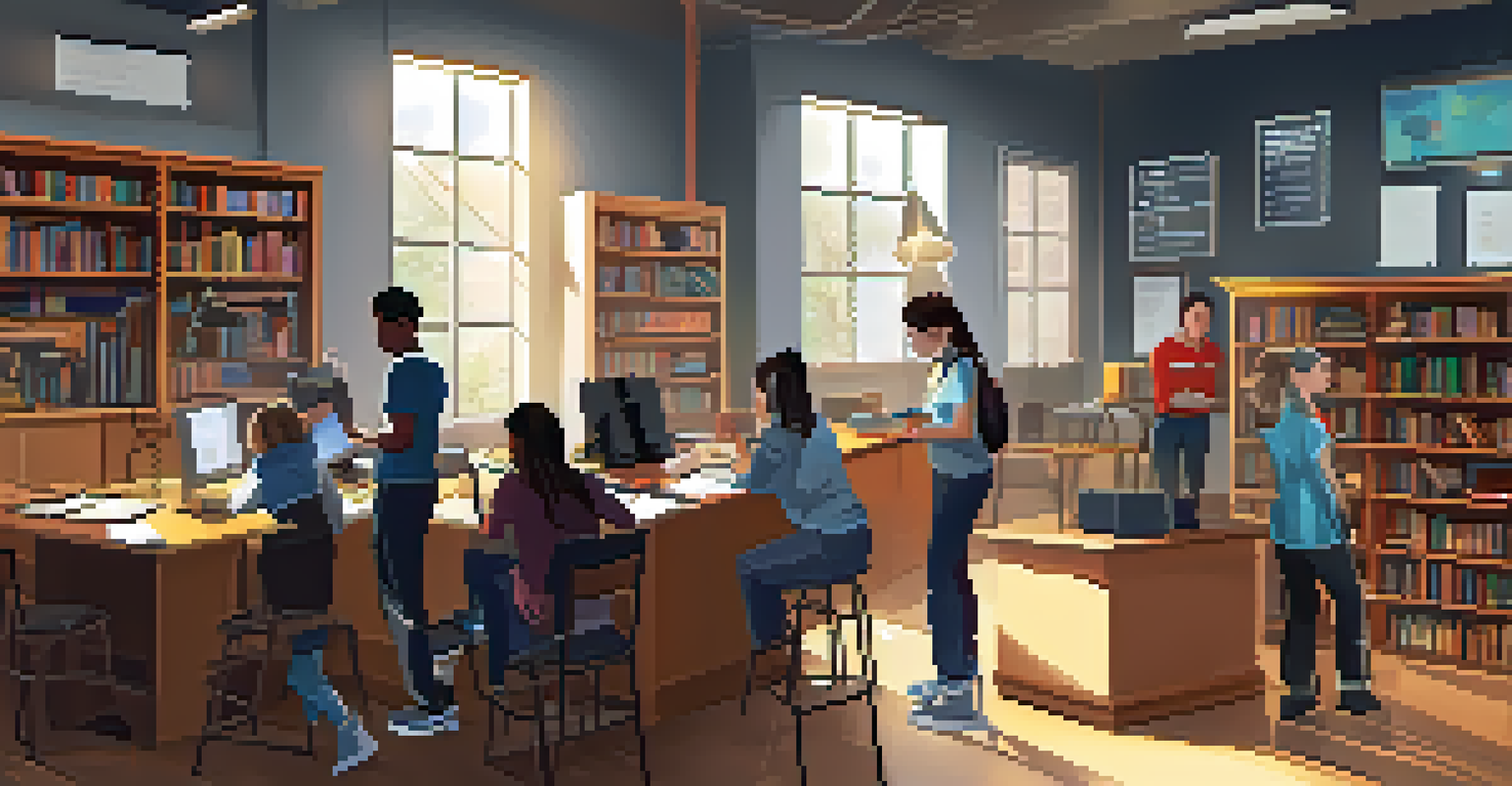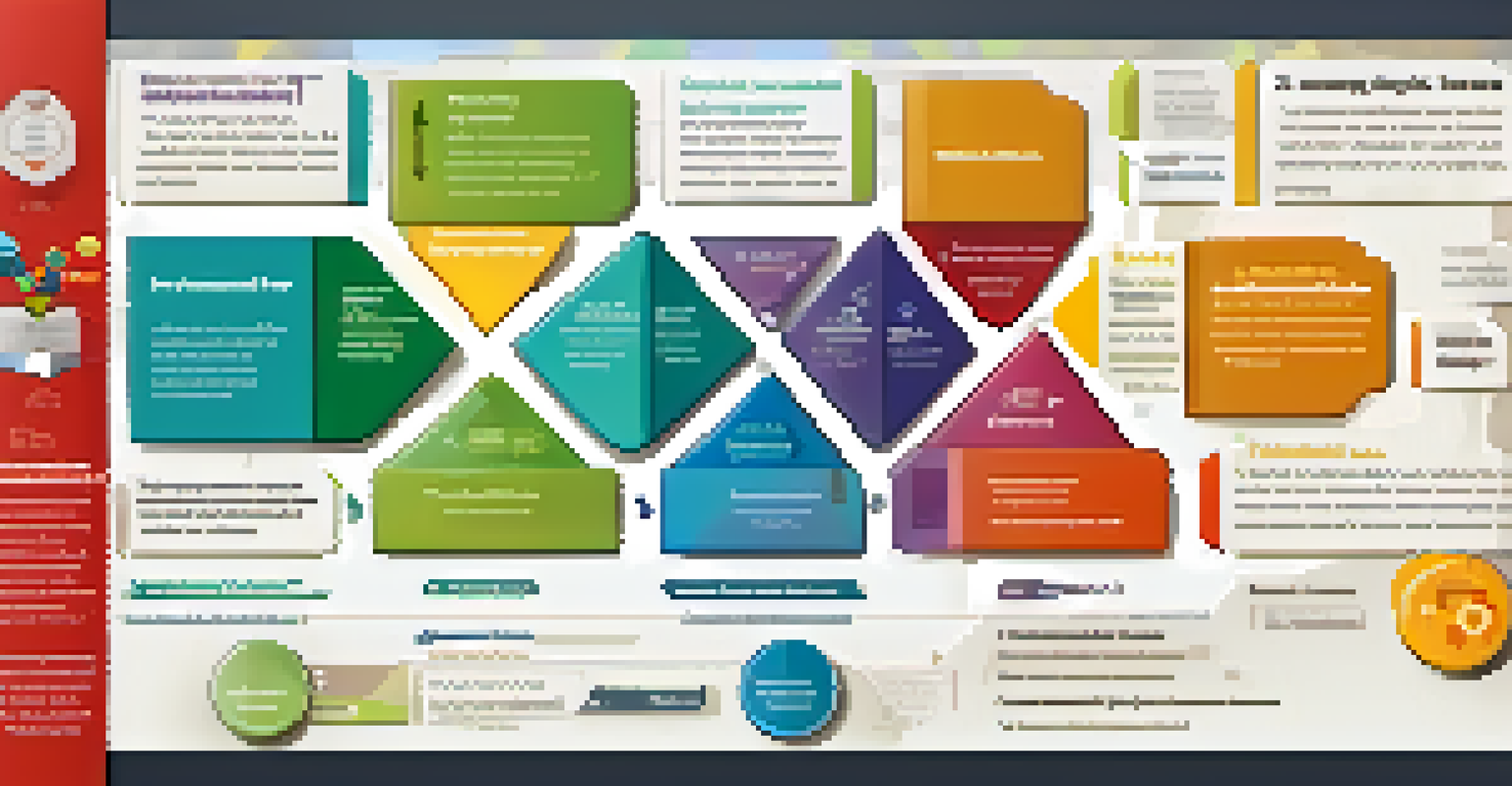Using Gamification to Enhance Research Skills Among Students

Understanding Gamification and Its Benefits for Students
Gamification involves applying game-like elements in non-game contexts, like education. It transforms mundane tasks into engaging activities, making learning more enjoyable. For students, this means they can develop research skills in a playful, motivating environment.
Gamification can turn the mundane into the extraordinary, transforming learning into an engaging adventure.
Imagine turning the research process into a treasure hunt where students earn points or badges for finding valuable information. This not only encourages participation but also fosters a sense of achievement. By incorporating gamification, educators can tap into students' natural desire for competition and rewards.
Ultimately, gamification helps students approach research with a positive mindset. Instead of feeling overwhelmed by the task, they engage with it actively, which can lead to better retention of information and a deeper understanding of the subject matter.
Identifying Key Research Skills to Gamify
Before diving into gamification, it’s essential to pinpoint the specific research skills you want your students to develop. These might include critical thinking, information literacy, and data analysis. By focusing on these foundational skills, educators can create targeted gamification strategies.

For instance, if the goal is to improve information literacy, a game could challenge students to differentiate between credible and non-credible sources. This approach not only makes learning fun but also equips students with crucial skills they'll use throughout their academic careers.
Gamification Engages Students
Gamification transforms research tasks into engaging activities, fostering a positive mindset and deeper understanding.
By understanding and prioritizing these key skills, teachers can design gamified experiences that are both educational and engaging. This alignment ensures that students are not just playing games but genuinely enhancing their research capabilities.
Designing Engaging Gamified Research Activities
Creating gamified activities for research can be as simple or as complex as you want. For example, you could design a scavenger hunt where students must locate various types of sources on a topic. Each successfully found source could earn them points or unlock new levels of the game.
The greatest danger in times of turbulence is not the turbulence; it is to act with yesterday's logic.
Another idea is to develop a role-playing game where students assume the identity of researchers in different fields. They can simulate the research process, facing challenges and rewards that mimic real-world scenarios. This approach enhances not only their research skills but also their understanding of various disciplines.
The key to successful gamified activities is to ensure they are relevant and directly linked to the students' learning objectives. By making the activities fun and relatable, students are more likely to engage deeply and retain what they learn.
Incorporating Technology into Gamification Strategies
In today’s digital age, technology can play a vital role in enhancing gamification efforts. Platforms and apps designed for educational purposes can help track student progress and provide instant feedback. This real-time interaction keeps students motivated and allows for adjustments to their learning paths as needed.
Consider using online simulations or interactive quizzes that allow students to practice their research skills in a controlled environment. For example, they can engage in virtual research projects that require them to evaluate sources or analyze data. The immediate gratification of seeing their results can significantly boost their confidence.
Focus on Key Research Skills
Identifying essential research skills allows educators to design targeted gamified experiences that enhance learning.
By integrating technology, educators can create an immersive experience that goes beyond traditional methods. This not only enriches the gamification process but also prepares students for modern research practices.
Fostering Collaboration Through Gamified Research
Gamification can also promote collaboration among students, which is crucial for developing research skills. Group activities that incorporate game elements allow students to work together to solve problems or complete tasks. This collaborative approach encourages them to share ideas and learn from one another.
For instance, you could create a team-based competition where groups must present their research findings in a creative way. This not only enhances their research skills but also boosts their teamwork and communication abilities. Plus, the friendly competition can make the learning process even more exciting.
By fostering a collaborative environment, students can develop a sense of community and support. This camaraderie can be instrumental in building confidence and making the research process less intimidating.
Evaluating the Effectiveness of Gamification in Research Skills
To ensure that gamification is effectively enhancing research skills, it’s essential to evaluate its impact. This can be done through assessments, feedback, and observations. By collecting data on student performance before and after implementing gamified strategies, educators can gauge their effectiveness.
Additionally, student feedback can provide valuable insights into what aspects of gamification they enjoyed and found beneficial. This information can help educators refine their approaches, making them even more engaging and effective in the future.
Collaboration Boosts Learning
Gamified group activities encourage collaboration, improving teamwork and making the research process less intimidating.
Ultimately, continuous evaluation allows educators to adapt their methods and ensure they meet the needs of their students. This commitment to improvement can lead to a more enriching learning experience and better research skills overall.
Success Stories: Real-Life Examples of Gamification
Many educators have successfully implemented gamification to boost research skills among students. For instance, one high school teacher created a digital escape room where students had to solve research-related puzzles to 'escape.' This innovative approach not only made learning fun but also improved students' ability to find and analyze information.
Another example comes from a university where professors introduced gamified research assignments that required students to collaborate virtually. The outcome was a noticeable increase in engagement and a deeper understanding of the research process among students.

These success stories illustrate the potential of gamification to transform traditional educational methods. By sharing such experiences, educators can inspire one another to adopt gamification strategies that enhance learning.